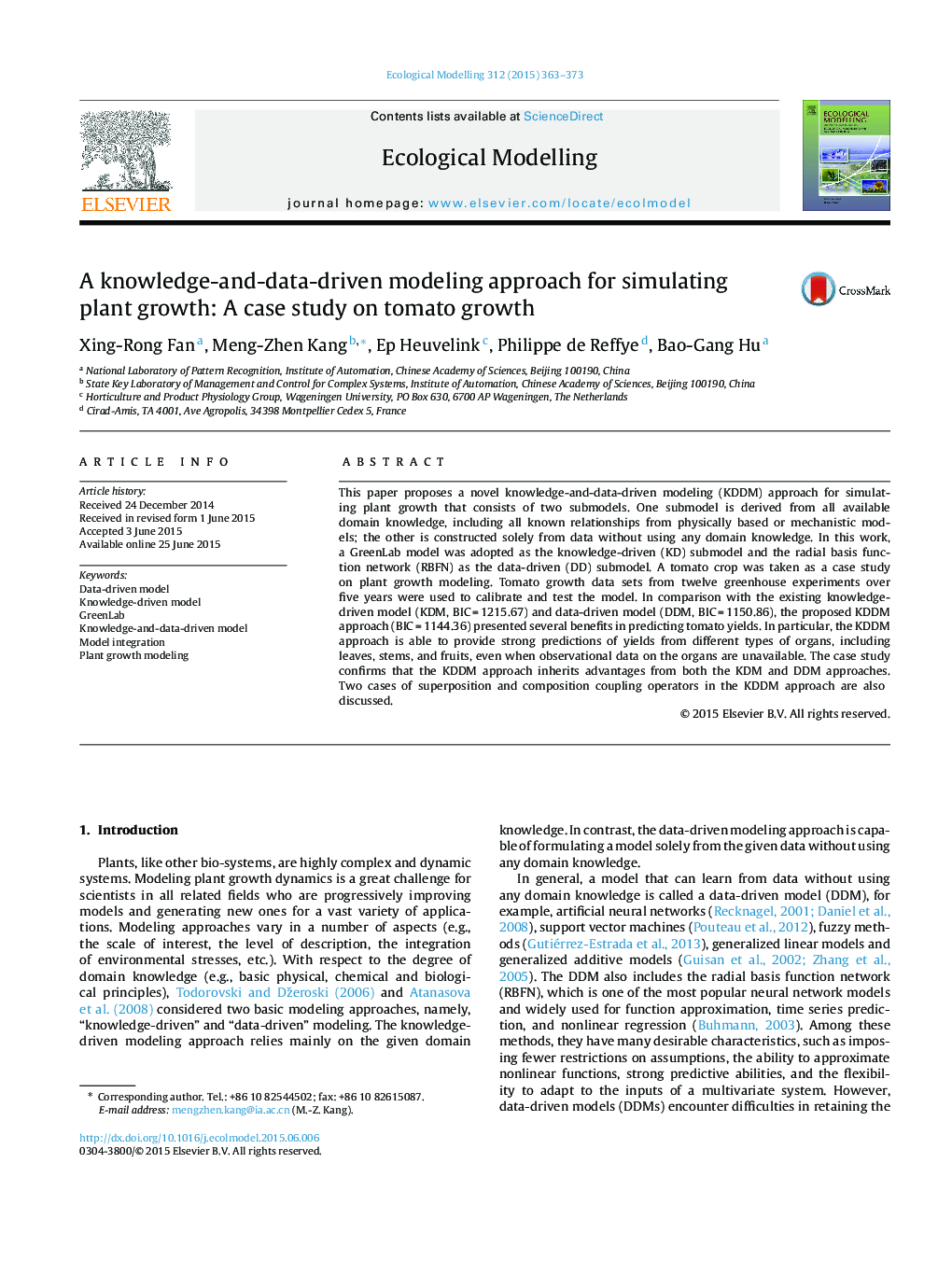| Article ID | Journal | Published Year | Pages | File Type |
|---|---|---|---|---|
| 6296575 | Ecological Modelling | 2015 | 11 Pages |
Abstract
This paper proposes a novel knowledge-and-data-driven modeling (KDDM) approach for simulating plant growth that consists of two submodels. One submodel is derived from all available domain knowledge, including all known relationships from physically based or mechanistic models; the other is constructed solely from data without using any domain knowledge. In this work, a GreenLab model was adopted as the knowledge-driven (KD) submodel and the radial basis function network (RBFN) as the data-driven (DD) submodel. A tomato crop was taken as a case study on plant growth modeling. Tomato growth data sets from twelve greenhouse experiments over five years were used to calibrate and test the model. In comparison with the existing knowledge-driven model (KDM, BICÂ =Â 1215.67) and data-driven model (DDM, BICÂ =Â 1150.86), the proposed KDDM approach (BICÂ =Â 1144.36) presented several benefits in predicting tomato yields. In particular, the KDDM approach is able to provide strong predictions of yields from different types of organs, including leaves, stems, and fruits, even when observational data on the organs are unavailable. The case study confirms that the KDDM approach inherits advantages from both the KDM and DDM approaches. Two cases of superposition and composition coupling operators in the KDDM approach are also discussed.
Related Topics
Life Sciences
Agricultural and Biological Sciences
Ecology, Evolution, Behavior and Systematics
Authors
Xing-Rong Fan, Meng-Zhen Kang, Ep Heuvelink, Philippe de Reffye, Bao-Gang Hu,
